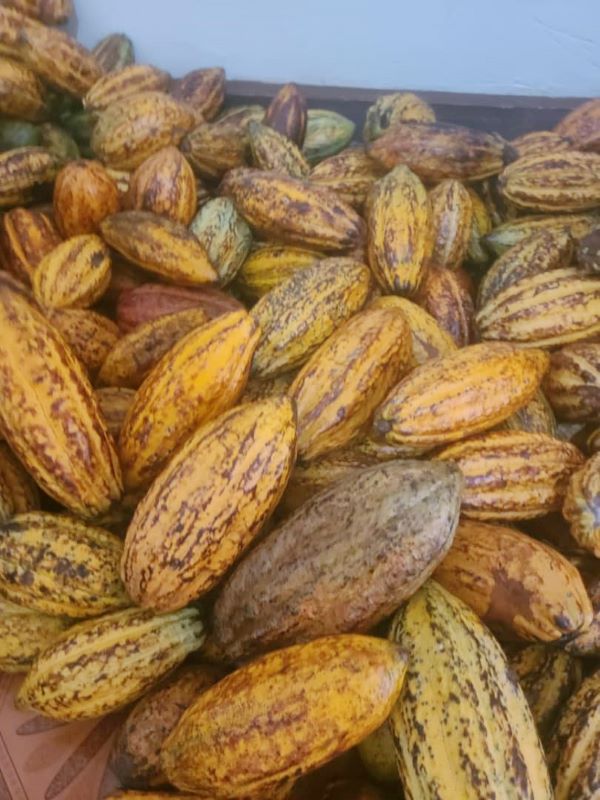LIRA CITY, January 2, 2025 –– The people of the Lango subregion have been encouraged to practise farming as a family enterprise in order to increase production and improve their living standards.
This message was reiterated by Dorcus Alum, the Principal Agricultural Officer for Lira district, during a meeting with cocoa farmers from the Lango subregion, organised by ICAM Chocolate Uganda Limited at the Apostolic Centre in Lira City.
Alum stated that farming is the only sustainable business that can be easily passed on to future generations.
She urged the people of Lango to consider family farming enterprises, explaining that this approach would not only improve living standards but also reduce the tendency to sell land.
“Farming is the only thing that can change our lives. We are fortunate in Lango, as we still have land. If we dedicate 4 to 5 acres to growing perennial crops, we will never be poor. Let’s learn to pass on the business to our children. Many people think farming is not a business, but it is a lasting business. Run it as a family enterprise and the profits will come in abundance,” Alum said.
Lincoln Owera, Chairperson of the Itek Subcounty Pur En Lonyo Cooperative in Iyel village, Alebere Parish, agreed, saying that family farming is a brilliant idea because it helps develop families and secures the future of the younger generation.
“I fully support this idea. I am planning to grow either Hass avocado, coffee, or cocoa, which my children can inherit when I am no longer around. Despite having planted some trees, if you grow up in a poor family, you should work hard to ensure your children do not face the same hardships you experienced,” Owera explained.
Alum also encouraged farmers to embrace cocoa farming, noting that it only takes a few years to start reaping the rewards.
“Let’s view cocoa farming as a key component of our agricultural practices—it is a game changer. In just three years, you will begin to see wealth. Don’t worry about leaving plantations behind when you die; life continues after death,” Alum added.
During the meeting, Fabio Giomo, the Executive Director of ICAM Chocolate Uganda Ltd, highlighted a significant challenge, saying that farmers often focus solely on earning money and rush the drying of cocoa beans after removing them from the pods.
“The issue I still see is in post-harvest management. People still don’t realise that fermenting the cocoa beans is essential for developing the flavour needed in the industry. Many rush to get cash and after removing the seeds from the pod, they simply dry them in a hurried and poor manner,” Giomo explained.
Giomo also criticised some companies for purchasing low-quality cocoa beans, particularly in districts like Bundibugyo.
“Some companies don’t discriminate by quality but just want to buy cocoa, which causes problems. This is common in Bundibugyo district, where buyers are crowded together,” Giomo added.
However, he noted that farmers in Lira are increasingly adopting cocoa farming practices, and he believes this will improve the quality of the produce, as farmers now understand how to manage it post-harvest.
“The people of Lira are very committed and progressing rapidly, so I believe growing cocoa in Lira will help us overcome poor post-harvest management and produce higher-quality beans, now that farmers are being better informed in advance,” he said.
Samuel Atine, a resident of Aminteng Ward, Aminteng East Cell, in Agulu Division, Apac District, who has been growing cocoa for four years, said that he always ferments his cocoa beans for at least four days before drying them to ensure good quality.
“We haven’t fully realised the value yet, but that’s how people are sometimes—they rush for the money. They don’t care much about the quality of what they produce. But for us, we’ve built fermentation boxes where we ferment for five days before drying them properly,” Atine said.
Atine added that growing cocoa is far more profitable than any other crops previously cultivated in Lango.
“Last year, we sold a kilo of cocoa for between 30,000 and 35,000 shillings. When you multiply this by 100 kilos, it’s far better than growing maize,” Atine remarked.
Meanwhile, Jovino Akaki, another resident of Apac District and cocoa farmer, expressed that he is still new to cocoa farming, but he intends to learn about post-harvest handling when the time comes.
“I haven’t yet reached the post-harvest stage, I’m still learning, but I am sure I will take an interest when I reach that stage,” Akaki said.
According to the Food and Agriculture Organisation [FAO], after splitting the pod, the beans should be scooped directly into cylindrical baskets, which allow heat to develop evenly. The beans should ferment for two days, with thorough mixing every day for five days.
It should also be noted that drying cocoa beans reduces the growth of mould and helps improve the flavour. Properly fermented and dried beans should be brown in colour when cut in half.
https://thecooperator.news/lango-fish-farmers-urge-govt-to-build-feed-processing-facility/
Buy your copy of thecooperator magazine from one of our country-wide vending points or an e-copy on emag.thecooperator.news
